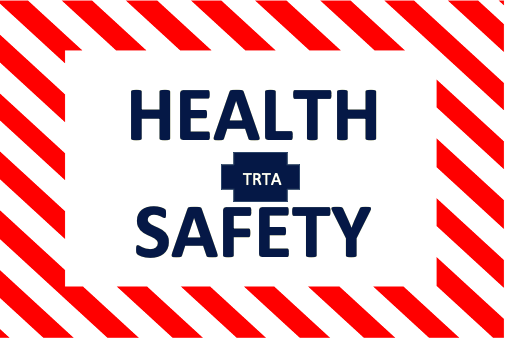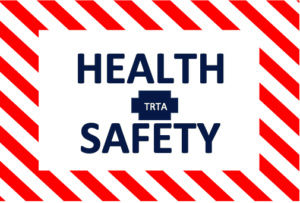Medically Reviewed by Smitha Bhandari, MD on December 16, 2022
Written by Mary Jo DiLonardo Source: WebMD.com
A Growing Problem
It’s much more than a casual drink or a pain pill now and again. More middle-aged and older adults are misusing alcohol, opioids, heroin, and marijuana. The National Institute on Drug Abuse reported in 2019 that rates of substance use had climbed in adults between 50 and 64 years old and in those 65 years and older in the previous decade. It’s been called the “invisible epidemic.” But knowing what to look out for can help you protect yourself or a loved one.
Why It Happens
People face big changes later in life. They may feel stress and anxiety due to:
- Retirement
- Loss of loved ones
- Loneliness
- Sleep problems
- Family conflicts
- Financial concerns
Some turn to alcohol or drugs to soothe worries and fill the time. Also, baby boomers (those born between 1946 and 1964) came of age when opinions about alcohol, marijuana, and other drugs were changing. Some kept those views as they aged.
Who Is Most at Risk?
Among people 50 and up with substance abuse problems, men are more likely to abuse alcohol. Women are more likely to abuse prescription drugs. You’re at a higher risk of abusing drugs or alcohol in your later years if you:
- Are white
- Are a baby boomer (born between 1946 and 1964)
- Have a higher income
- Live alone
- Lost your spouse
- Retired unexpectedly or were laid off
- Have long-lasting (chronic) pain
- Are disabled
- Have a history of substance abuse or mental illness.
Why It’s Hard to Detect
Family, friends, and doctors often don’t know when older people have a problem with alcohol and drugs. It’s easy to mistake some symptoms for normal signs of aging. Once you retire, problem drinking or drug use doesn’t interfere with your job. And more time alone makes it easier to hide substance use. Sometimes, people notice but ignore it, thinking it’s best for older people to keep doing what makes them happy.
Symptoms of Substance Abuse
Someone who is abusing prescription drugs will need more medicine than they used to. Those with an alcohol problem might start to drink alone or be secretive about drinking. Other warning signs include:
Alcohol and Older People When you age, your body reacts differently to alcohol. You may get drunk on less, and it takes longer to wear off. Alcohol interacts with many drugs that older people take. And it can make many medical conditions worse, such as:
Experts recommend that older people have no more than seven alcoholic drinks per week. More than that could signal problem drinking. Misuse of Prescription Drugs There are several reasons older people may have problems with prescription drugs:
Make sure your primary doctor has a list of all the medications you take, even over-the-counter ones. More Are Smoking Marijuana About 4.2% of those 65 and older reported using marijuana in 2018, up from 2.4% in 2015. Cannabis has medical uses, such as pain relief. But it can also cause problems, especially in older people and those with heart disease. It may:
Talk to your doctor before you try it. Illicit Drug Use Use of illegal drugs like cocaine and heroin (and marijuana, in some states) is much lower in people 50 and up than in younger people. But it’s more common among this age group in the U.S. than almost anywhere else. It’s especially dangerous because their bodies don’t process drugs as quickly as when they were younger. This can lead to falls, accidents, and overdoses. How to Get Help If you think you might have an alcohol or drug problem, first talk to your doctor. They can assess you, and help you find treatment if needed. Depending on your situation, it could include:
Treatment usually works even better for older people than for younger ones. |
What Families Can Do
If you’re worried about an older loved one’s use of alcohol or drugs, talk to them about it. Be direct but be kind and don’t judge. They might not realize they need help. They may say they are fine. But encourage them to talk to their doctor. If that doesn’t work, consider asking their doctor, minister, or a longtime friend to approach them instead.
SOURCES:
Johns Hopkins Medicine: “Substance Use Disorders in Older Adults: A Growing Threat.”
Health in Aging Foundation: “Older Adults And Substance Abuse Awareness.”
University of Pennsylvania Health System: “Stairway to Recovery.”
Hazelden Betty Ford Foundation: “Drug Use, Misuse and Dependence Among Older Adults,” “How Do You Talk to Older Adults Who May Be Addicted?”
Clinics in Geriatric Medicine: “Substance Abuse Among Older Adults.”
Substance Abuse and Mental Health Services Administration: “A Day In the Life of Older Adults: Substance Use Facts.”
Geriatric Mental Health Foundation: “Alcohol/Drug Abuse/Misuse.”
Circulation: “Triggering Myocardial Infarction by Marijuana.”
National Institute on Drug Abuse: “Substance Abuse Among Older Adults.”
West Virginia University School of Public Health: “Too Many Prescription Drugs Can Be Dangerous, Especially for Older Adults.”
News release, Journal of the American Medical Association: “Marijuana Use Among Older Adults in the US.”


